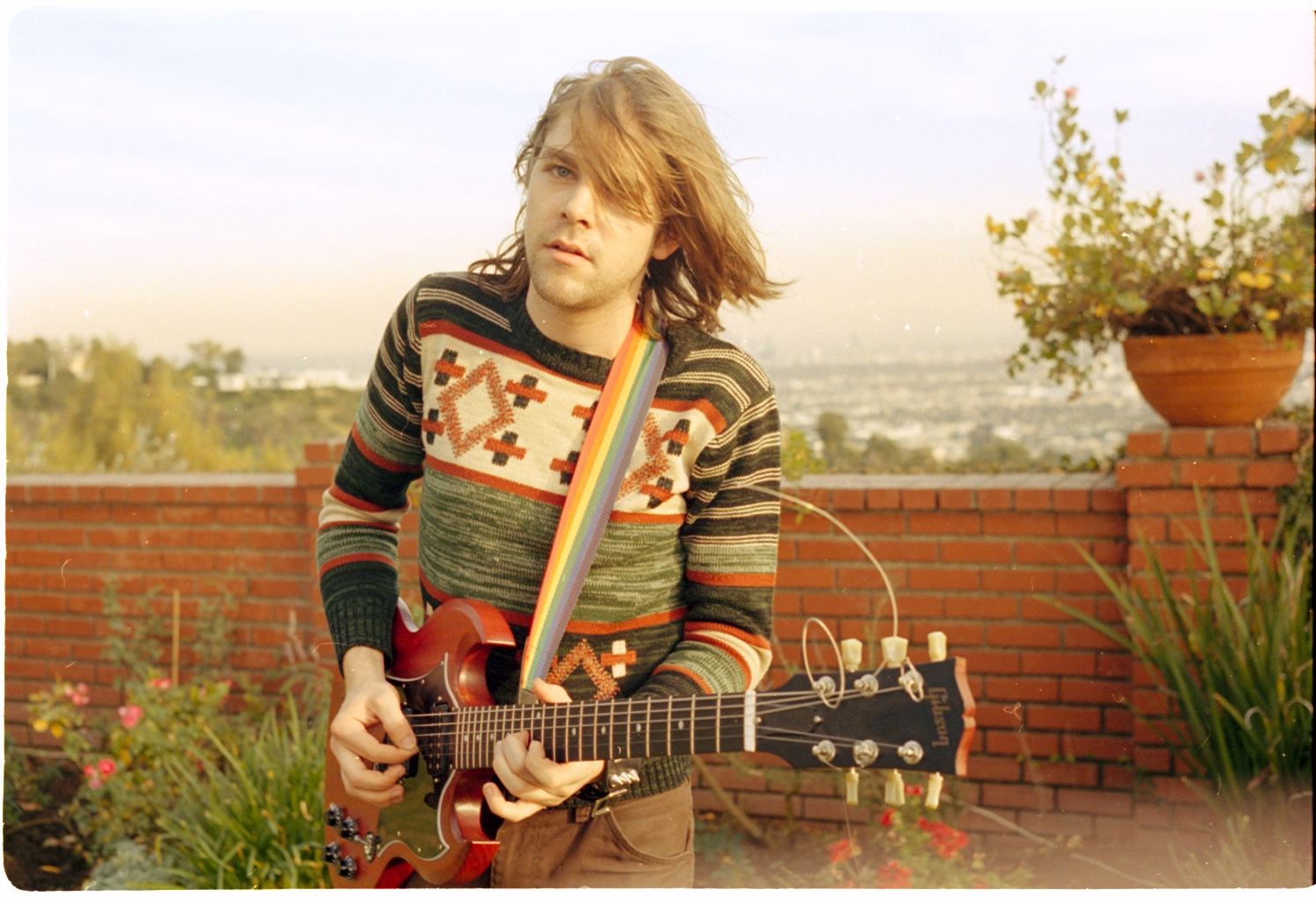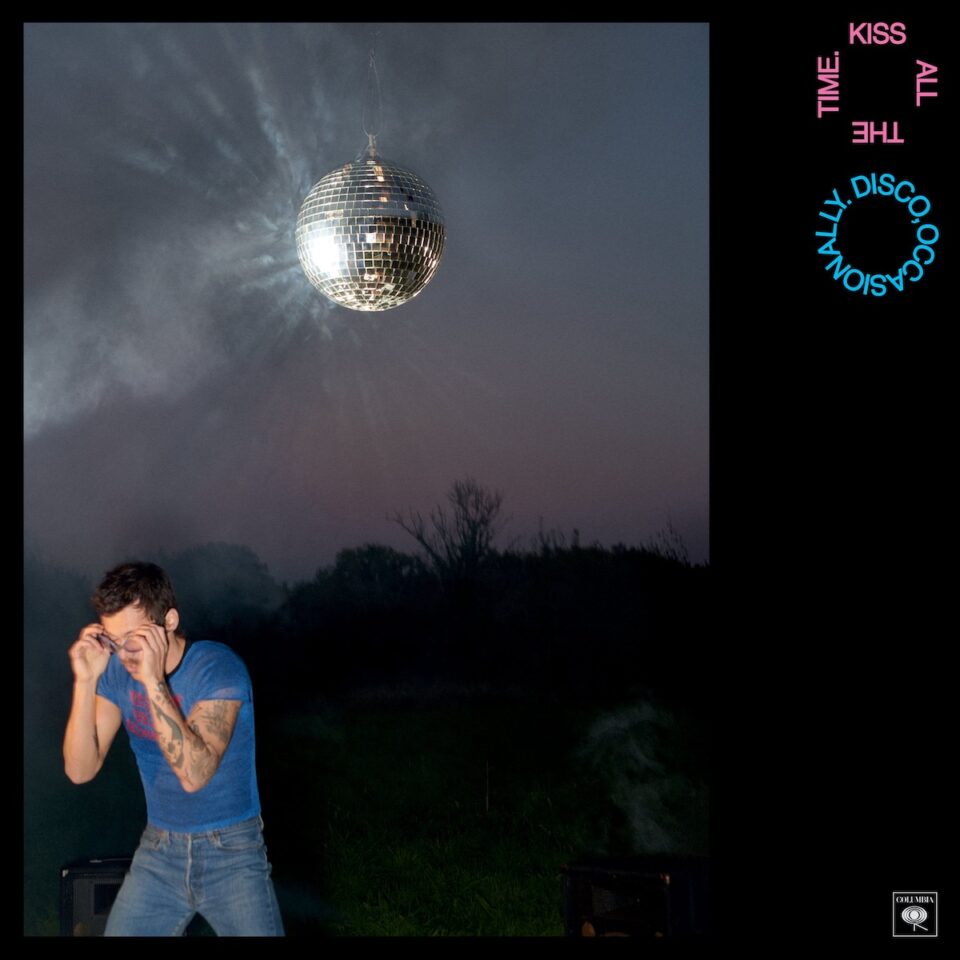Ariel Rosenberg—a.k.a. the trailblazing lo-fi pop eccentric, Ariel Pink—has released more albums over the past twenty years than many bands do in their entire careers. Some of his most beloved releases, recorded under his Ariel Pink’s Haunted Graffiti moniker, came from the artist’s days on Animal Collective’s now-defunct Paw Tracks label. However, these versions weren’t mixed properly, resulting in a subpar, mono audio transfer.
Now, Pink and the folks at Mexican Summer are making things right with the Ariel Archive Series, an ambitious project of remasters and reissues of the artist’s vast back catalog. The amount of time covered is staggering—starting from Pink’s scrappy debut, 1999’s Underground tape, all the way to a fresh odds-and-ends collection, Oddities Sodomies Vol. 2, which even has new songs from the Dedicated to Bobby Jameson sessions.
This week, the next wave of remasters is here, with some fan-favorite deep cuts—2000’s The Doldrums, 2002’s House Arrest, and 2003’s Worn Copy. There’s even a new experimental film on the way as a part of the series, entitled Dedicated to Boris Karloff, directed by Argentinian artist Salvador Cresta.
We chatted with Pink, hunkered down in his Los Angeles home, about the archive series. He reflected on his legacy, praised his collaborators, and scoffed at the notion of giving his younger self advice.
What was the remastering process like for the albums in the archive series? Aside from the mono to stereo mixes, was there anything you specifically wanted to change or enhance on these versions compared to the Paw Tracks editions?
When I originally recorded these things, I built up several generations’ worth of mistakes. There was so much slippage and waste. Remastering the albums was a matter of finding the original mixes I made on those master cassette tapes and using those to remaster to the proper stereo mix. We managed to find a bunch of them. Some of them were lost, but in the case of House Arrest, The Doldrums, and Loverboy, we managed to salvage true stereo mixes. In certain cases we weren’t able to find the originals. In those instances we had to make a mix that was comparable to the original from just straight off the eight-track.
It was fun to do because I had [recording engineer] Paul Millar with me. He’s an amazing, thorough audiophile. He just really knows the technical stuff and fixates on things I didn’t even pay attention to. He’s very, very well-versed in the material. He came with his own notes and questions and curiosities. His energy really kind of carried the process, to tell you the truth. It was a pleasure to have him in my house.
Did Paul have any notes about what could be changed that surprised you?
“There’s plenty of things I wouldn’t do now that I did back in the day, but I’m proud and impressed with how I did things on those albums. I don’t know how I did it. It’s like listening to someone else, like listening to an alien, in many ways.”
What surprised me more than anything was that he really didn’t want to change anything. I was assuming we would be working straight off the eight-track and remixing all of the songs together from scratch. But he was adamant that we stick to the original mixes as often as possible. I don’t know if that was laziness on his part or a matter of being as true to the original records as possible. It wasn’t like we were going to replace the mechanical drums with real ones. Quite the opposite. We wanted to preserve and represent the records the way they should have been originally.
Why do you think now is the right time to look back and reissue your catalog?
I don’t know if it’s the right time. It’s the easiest time for me because all the rights reverted back to me after the licensing with Paw Tracks. Those were five-, seven-year relationships that came and went. Paw Tracks folded, so those records were unavailable for a long time, unless I went on tour and they allowed me the albums for the tour merchandise.
But really, this is almost a perfect twenty-year anniversary. I’m forty-one now and I was twenty years old when I made a lot of these, roughly. It’s half of my life ago. It’s a nice twenty year retrospective. I probably won’t have to do it again for another twenty years, hopefully.
How do you feel when you listen to some of your oldest recordings?
I’m so familiar with the old stuff that that’s actually what’s natural. The new stuff is what takes years to sink in—to mixed results. There’s plenty of things I wouldn’t do now that I did back in the day, but I’m proud and impressed with how I did things on those albums. I don’t know how I did it. It’s like listening to someone else, like listening to an alien, in many ways.
What were the recording processes generally like for the older albums compared to how you do things now?
The older ones were very formulaic, the same thing every time. Primitive, no sampling. Just performing on the instruments, plugging them directly into the eight-track and pedal that I had. It was such minimal equipment. I would just power through them and wouldn’t spend any time cleaning them up. I would just move on to the next song. It was kind of like an eight-year-long quarantine session. I never played live. Nobody knew who I was. I was just spending my time doing that and working jobs, trying to live on my own.
It slowed down in 2004, and then I didn’t really write or record anything for about five years. I didn’t know if I would ever come back from that. It seemed like the inspiration had waned. Then I managed to land a record deal, and that was the beginning of using a studio and playing with a band. That was me learning from scratch all over again.
During that eight-year period, you had a huge output. What inspired you to be so prolific?
I didn’t think I was fast enough. But I also didn’t release any records—other people did. I made personal copies for people who I felt were worthy. Any attention that I got was greatly appreciated and I effectively gave them free reign to do whatever they wanted. They could make more copies for free. I didn’t expect anything. That’s how it was all the way till 4AD. I was definitely not expecting any money back in the day.
Can you talk about your friendship with R. Stevie Moore and what he means to you today?
“It was kind of like an eight-year-long quarantine session. I never played live. Nobody knew who I was. I was just spending my time doing that and working jobs, trying to live on my own.”
Stevie is a huge influence on my work. Back in the day, I listened to his stuff and almost nothing else. It was like I was his customer. He had a reputation among certain musicians, for sure, but I made a vow to make it in music, if only so that I could bring him with me and kind of ride his coattails. The world needed to know him. That they had been sleeping on him that long was a crime. But I think differently on all that stuff now, having gone through the attention machine. You’re not really missing out on anything.
Can you talk about the experimental film you have coming up, Dedicated to Boris Karloff, with artist Salvador Cresta?
It’s as much of a mystery to me as it is to you. I knew Salvador for about a year via email. He wrote me first, just fucking coming out of nowhere, and sent a video he made for “I Wanna Be Young.” I thought it was genius. I think my excitement for his aesthetic excited him and he sent me more videos. They were more or less postcards. He was doing things day-to-day in them—filming in the backyard, washing his feet, hanging out with his dog. He would even film himself filming. It got crazier and more meta from there. The guy basically dreams with a camera and is able to express himself effortlessly. It’s a real talent.
A while back, I brought him into my kitchen and he just lived there and made footage that would become the backdrops for our shows. He never relied on me for anything. It’s just been a gas to see what he comes up with. He’s sent me at least sixteen twenty-minute videos for Boris Karloff—like a whole season of something. It has footage of the tour, communications with my friends, tons of stuff. It’s so thorough and vast. It makes me jealous of myself that I get all of this. His aesthetic nails a certain quality that very few people are able to emulate. He gets carte blanche from me to do whatever he wants.
His aesthetic does match pretty perfectly with your music.
It’s not an accident. He knows all of my stuff so well. He has the perfect feeling for how it should be represented. I wouldn’t do everything the way he does it, but he’s spent enough time with me that he’s picked my brain about everything. I see themes from our conversations pop up in videos a couple of years after we talked about it. He painstakingly catalogued it all. He studied like an actor—like Johnny Depp meeting with Hunter S. Thompson.
What’s coming up next for you after the archive series?
There’s a contract for another record, so I’ll probably work on that. There’s also a book coming out, one that’s largely been written. It’s sourced from lots of artists and people who were in my friend group. It’s sort of a companion to the archive series. It’s got scans of all my work, just a hodgepodge of everything that’s been recorded for years.
Knowing what you know now, what advice would you give to young CalArts Ariel, who was just starting out?
I wouldn’t give myself any advice. I wouldn’t have listened to any advice. I would have done the opposite of any advice that I got. I’m still that guy—I’m just a lot more world-weary and not as much of an idiot about lots of things. But I don’t think that I was late or too early. I think I was perfectly poised in time for whatever it was that I was doing. In my mind I was doing something that had never been done before, so that was cute.
The whole thing has always been an exercise in doing something that was irrelevant and wouldn’t make an impact. It was obsolete by design. It wouldn’t have an audience. It wouldn’t even be considered “retro.” I was perfectly happy doing it for myself and the select few who I deemed special enough to actually receive it. It did eventually take off and I have had a career, so in some sense, I’ve had to grapple with the failure of my plan. FL







